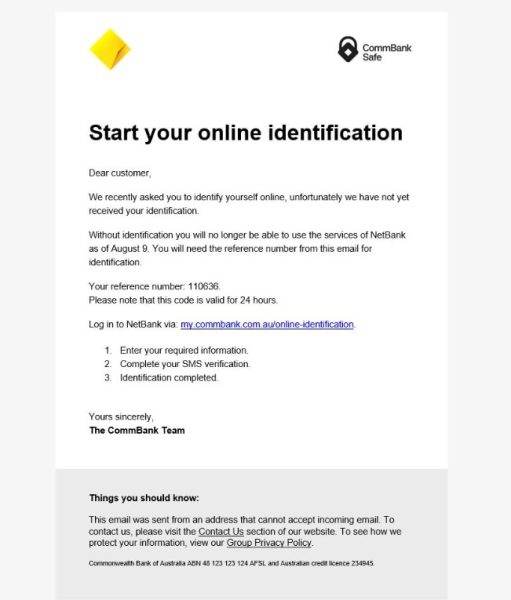Residents throughout the Clarence Valley and beyond are being reminded to remain vigilant when checking emails after locals received an email claiming to be from the Commonwealth Bank asking people to start their online identification.
The email, which appears to be genuine and contains the Commonwealth Bank logo and ABN, informs the recipient they won’t be able to use the services of Netbank as of August 9, as the bank hasn’t received their online identification.
Lower Clarence Computers owner Ken Finlayson shared the email on social media, warning people to thoroughly check emails, as this originated from an address ending in .com.br, which is the country code for Brazil.
A reference number is provided in the email, which it says is valid for 24 hours, plus a link to click on to enter the required information and complete your SMS verification.

Anyone who clicks on the link which looks like it is to the Commonwealth Bank, Mr Finlayson said, will be taken to the site termoboliva-dot-com.
The Commonwealth Bank advises they will never send you an email or SMS asking for banking information like your NetBank Client ID, password, or NetCode; or include a link to login directly from an email or SMS.
Anyone who is unsure of whether an email or message is legitimately from the Commonwealth Bank is advised to message the bank in the CommBank app or visit a branch so staff can assist you.
If you receive a suspicious email or text that you think is a scam, report it to hoax@cba.com.au then delete it straight after, do not reply or engage with the email.
Scams can also be reported to the Australian Competition and Consumer Commission’s Scamwatch website https://www.scamwatch.gov.au/report-a-scam